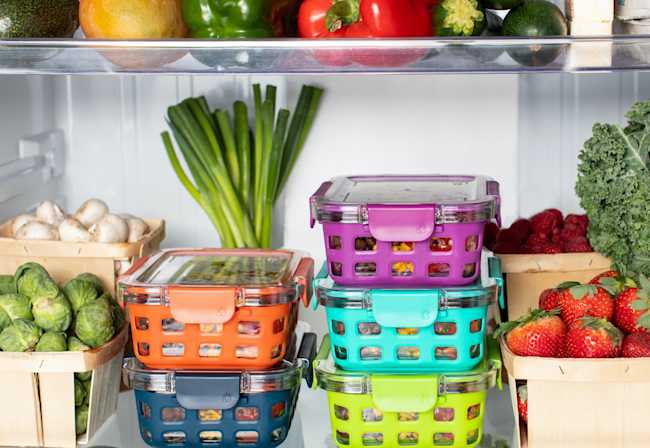PA Pointers: how to compost without a backyard
By Ashmeeta Subra 22 October 2025
Composting may sound tricky for urban dwellers and those without a backyard, but all it really takes is a few simple habits and a small corner of your kitchen.
Food scraps and organic waste should never be put in your home recycling bin. Not only are they not recyclable, they can also contaminate other materials, prevent them from being recycled, and negatively impact recycling equipment at processing plants.
If your council has provided you with a Food Organics and Garden Organics (FOGO) bin, you can use it to recycle your food scraps but it’s always best to check with your council to see what types of organics are accepted.
If a FOGO service isn’t available in your area, consider starting a compost system at home or in your community. Composting turns food waste into nutrient-rich soil, which is great for gardens and houseplants.
No garden? No worries. We’ve put together a simple guide to help you start your indoor composting journey.
Reduce and reuse before you compost
As always, the most impactful thing one can do is cut down on scraps or find ways to give them a second life before resorting to compost. Try simmering fruit peels for a natural home freshener or saving veggie ends to make delicious soups and stocks!

There are so many easy, practical ways to reuse what we have before they ever need to be composted. It also helps to cut down the amount of material going into your compost, which can be an issue particularly for those composting in small spaces.
Getting started: collecting scraps
The easiest way to begin is by collecting your food scraps in a container or reusable bag and storing them in the freezer. Freezing helps keep smells and pests away and once it’s full, you’re ready for the next step.
Composting indoors
There are a few compost systems you can choose from or you can even combine a few if you have a lot of scraps to work with:
Compact options like a Bokashi bucket, countertop compost bins or worm farms can fit easily in your kitchen, on a balcony or under the sink. You can even find these items secondhand through online marketplaces or tip shops.
Find a cool, dry spot that’s easy to access under the sink, on the kitchen counter or in a cupboard. Avoid direct sunlight or heat and use a container that seals well to keep smells and fruit flies at bay.
Check what each type of compost system accepts. Avoiding large amounts of meat, dairy or oily substances is a good rule of thumb unless you’re using a Bokashi system.
Follow specific instructions for maintenance and harvesting for each type of compost system. If using a Bokashi for instance, bury the scraps in a potted plant or community garden.
Check with your local council or community garden for composting workshops and other troubleshooting support if you need more help getting started.
Community composting and drop-offs
If DIY composting isn’t your thing, your neighbourhood may have compost drop-off points at farmers markets, gardens or co-ops. Some apartment buildings or local communities run shared compost bins or worm farms. Check if your building has one or consider starting one!
Visit our Food Waste Hub for more information.
With background in international relations and marketing communications, Ashmeeta is excited to use her skills to encourage positive environmental actions through Planet Ark. She believes that by taking small actions, we can help make a big difference and be good stewards of our planet. She also loves spending time in nature and being at the beach.




